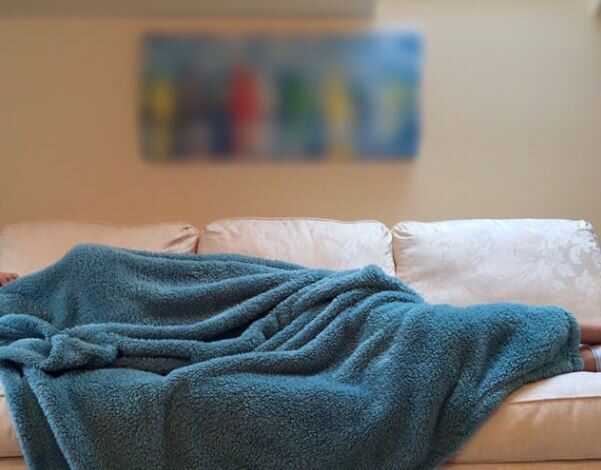Bedroom
Healthy Sleep Habits: Tips for Better Family Rest as the Seasons Change from Spring to Summer

As spring transitions into summer, the longer days and warmer nights can disrupt sleep patterns for the entire family. Ensuring everyone gets quality rest is essential for maintaining overall health and well-being. Here are some practical tips to help your family adapt to the seasonal changes and enjoy better sleep.
1. Maintain a Consistent Sleep Schedule

Set Regular Bedtimes:
- Establish consistent bedtimes and wake-up times for the whole family, even on weekends. This helps regulate your internal clock and improves the quality of sleep.
Create a Bedtime Routine:
- Develop a calming bedtime routine that signals to your body that it’s time to wind down. This can include activities like reading a book, taking a warm bath, or practicing gentle stretching exercises.
2. Optimize the Sleep Environment
Keep Bedrooms Cool:
- As temperatures rise, keeping bedrooms cool is crucial. Use fans, air conditioning, or open windows to maintain a comfortable sleeping temperature, ideally between 60-67°F (15-19°C).
Darken the Room:
- Longer daylight hours can interfere with sleep. Use blackout curtains or blinds to keep bedrooms dark. For young children, consider using nightlights with dim, warm light to avoid disrupting their sleep.
3. Limit Screen Time Before Bed
Establish Screen-Free Zones:
- Keep electronic devices like phones, tablets, and TVs out of bedrooms. The blue light emitted from screens can interfere with the production of melatonin, a hormone that regulates sleep.
Set a Screen Curfew:
- Implement a screen curfew at least an hour before bedtime. Encourage activities like reading, listening to calming music, or drawing to help wind down.
4. Adjust Diet and Hydration
Avoid Heavy Meals Before Bed:
- Heavy or spicy meals can cause discomfort and disrupt sleep. Aim to have dinner at least two to three hours before bedtime and opt for light, healthy snacks if needed.
Stay Hydrated:
- While it’s important to stay hydrated, try to limit fluid intake in the hour leading up to bedtime to minimize nighttime awakenings.
5. Encourage Physical Activity
Stay Active During the Day:
- Regular physical activity can help regulate sleep patterns. Encourage family activities like biking, hiking, or playing sports, preferably earlier in the day to avoid stimulating the body close to bedtime.
Outdoor Time:
- Spend time outdoors during the day to soak up natural sunlight, which helps regulate the sleep-wake cycle.
6. Manage Seasonal Allergies
Address Allergies:
- Seasonal allergies can disrupt sleep. Keep windows closed during high pollen times, use air purifiers, and wash bedding frequently. Consider consulting a healthcare provider for appropriate allergy medications.
Shower Before Bed:
- Showering before bed can help remove allergens from your body and hair, reducing allergy symptoms that might interfere with sleep.
7. Practice Relaxation Techniques

Breathing Exercises:
- Teach your family simple breathing exercises to promote relaxation. Deep breathing can help reduce stress and prepare the body for sleep.
Mindfulness and Meditation:
- Incorporate mindfulness or meditation practices into your bedtime routine. Apps and guided sessions can be particularly helpful for both adults and children.
8. Adapt to Changing Light Patterns
Morning Light Exposure:
- Encourage exposure to natural light in the morning to help regulate the sleep-wake cycle. This can be as simple as having breakfast near a sunny window or taking a walk outside.
Dim Lights in the Evening:
- As the evening approaches, dim the lights in your home to signal to your body that it’s time to prepare for sleep. Use lamps with warm-toned bulbs to create a relaxing atmosphere.
9. Address Sleep Disturbances
Nighttime Comfort:
- Ensure that everyone’s bedding is appropriate for the warmer weather. Lightweight, breathable sheets and pajamas can make a significant difference in comfort and sleep quality.
Address Anxiety and Stress:
- Talk with family members about any concerns or stresses they may have. Creating an open environment for discussing worries can alleviate nighttime anxiety and promote better sleep.
10. Monitor and Adjust as Needed
Track Sleep Patterns:
- Keep a sleep diary to monitor your family’s sleep patterns. Note any changes in sleep quality and make adjustments as needed.
Be Flexible:
- While consistency is key, it’s also important to be flexible and make gradual adjustments. If certain strategies aren’t working, don’t hesitate to try different approaches to find what works best for your family.





